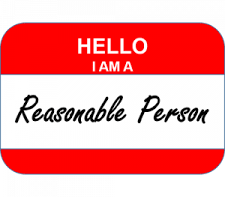American Democracy: Time to Shift from Choosing the Lesser Evil to Embracing True Leadership

The democratic system, a traditional bastion of free thought and expression, provides a fertile ground where contrasting ideologies compete to present the best solutions for societal issues. Yet, recent years have cast a shadow on this ideal due to the worrisome practices within the two major US political parties – the Democrats and the Republicans.
Democrats: Promise Today, Forget Tomorrow?
The Democrats often grapple with the critical issue of perceived integrity. This image has been exacerbated by the leaders’ track record of grand campaign promises, like universal healthcare, impactful climate change action, or large-scale debt forgiveness as highlighted by Politico. Unfortunately, these ambitious plans often fall short once they attain power. This bait-and-switch strategy devalues democracy’s essence and erodes the American people’s trust.
Furthermore, they’ve been criticized for potential legal oversights. For instance, circumventing local laws to advance progressive policies, or embroiling themselves in controversial foreign affairs according to Foreign Affairs. These issues suggest a readiness to bend laws to fit their agenda – a worrying precedent in a country where the rule of law should remain sacrosanct.
Republicans: Loyalty Over Truth?
The Republican party also faces its share of challenges related to integrity and adherence to legal norms. They often exhibit dedication to party loyalty at the cost of objective truth, evident in numerous instances of spreading false information or debunked conspiracy theories as discussed in The Washington Post. This behavior erodes honesty’s crucial role in public discourse.
Moreover, Republicans have been accused of leveraging gerrymandering and voter suppression tactics to secure an unfair advantage as per Brennan Center for Justice. Though not exclusively attributed to this party, these practices significantly compromise our democratic processes and create a sense of disenfranchisement among voters.
Political Discourse: A Tug-of-War?
An equally concerning issue is the apparent unwillingness of either party to engage in genuine bipartisan dialogue as mentioned by Brookings. The prevalent “us vs. them” mentality in our political discourse often leads to legislative gridlock, obstructing the path to meaningful, comprehensive reforms.
Time to Reform or Seek Alternatives?
This raises a critical question: Can the existing political parties be saved, or is it time for a drastic shift? There are arguments on both sides. On one hand, some believe that reform from within could help the Democrats and Republicans align more closely with the principles of honesty, integrity, and unbiased law adherence. This, they argue, could reinvigorate the trust of the American people as suggested by the Harvard Political Review.
On the other hand, a growing sentiment among the public is that the two-party system is beyond redemption and that it’s time to break free from this dichotomy as reported by Gallup. They argue for a new kind of leadership, untethered from the confines of the traditional parties, and dedicated to truth, fairness, and the collective good above all else.
No matter where one stands on this issue, it’s clear that the era of choosing the “lesser evil” must come to an end. American democracy needs to usher in a time where we’re voting for true leadership, not simply the least problematic option. This transformation, whether it comes through reform or the rise of new leaders, is essential for the health and vitality of our democratic process.
Breaking the Cycle: Voting Beyond the “Lesser of Two Evils”
In their moral justification, the argument of the lesser evil has played a prominent role. If you are confronted with two evils, the argument runs, it is your duty to opt for the lesser one, whereas it is irresponsible to refuse to choose altogether. Its weakness has always been that those who choose the lesser evil forget quickly that they chose evil.
Hannah Arendt
The prevailing sentiment of “I am sick of voting for the lesser of two evils” is a rallying cry for a new kind of elected official. We need leaders who prioritize truth, integrity, and the collective good over personal gain or party loyalty.
These leaders should embody honesty, making decisions based on factual evidence and acknowledging when they are wrong. Instead of promoting misinformation to suit their narratives, they should provide accurate information, enabling citizens to make informed decisions.
Integrity should be the cornerstone of their public service, standing up for what is right, even when it’s unpopular or inconvenient. They should shun any form of gerrymandering, voter suppression, or manipulation of laws for political gain. The rule of law should be upheld uniformly and without prejudice.
Lastly, they must recognize that compromise isn’t a sign of weakness but a vital characteristic of a functioning democracy. Working across party lines to pass legislation benefiting the public should be prioritized over promoting polarizing policies that only deepen societal divide.
The era of voting for the “lesser evil” must end. It’s high time we redefine what it means to be an elected official in America. We deserve leaders who understand the value of truth and integrity, leaders who seek to unify rather than divide. We need leaders who recognize that their ultimate responsibility lies not in serving their party interests but in serving the American people. Our democracy depends on it.
#ChoosingLesserEvil #TrueLeadership #AmericanDemocracy #PoliticalReform #DemocraticProcess #PoliticalIntegrity #BipartisanDialogue #EndGerrymandering #EndVoterSuppression #TimeForChange #USPolitics



